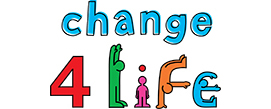Physical Health is vitally important for children, but Mental Health is often overlooked.
Shocking statistics show that 10% of children and young people (aged 5-16 years) have a clinically diagnosable mental health problem, yet 70% have not had appropriate interventions at a sufficient age.

It is just as important for children as it is for adults, and it is vital to reassure and encourage children to talk about their feelings and thoughts. It is important to acknowledge any problems early on and get the right help, which will help your child in the short term as well as throughout their adult life.
Events That Can Increase Likelihood of Problems Occurring:
- Starting school
- Transferring from Primary to Secondary School
- Changes in friendship groups
- Going through puberty
- Exam pressures
- Family changes, e.g. new siblings, divorce, bereavement, moving house
- Transition to university or work

How to Help Your Child with Anxious Thoughts:
- Write down feelings, this will help children to understand their feelings
- Listen to music
- Get professional help, visit the doctors
- Talk about feelings often
- Have a giggle with your child – this can help to relax them and give them a moment of solace
How Parents Can Help:
- Research the condition – help to understand thoughts and feelings and how to help
- Encourage social interaction with friends and family
- Provide peaceful and loving environment – this will help children to feel safe and happy
- Recovery takes time – not overnight. Be patient
- Keep track of their mental wellbeing – keep an eye out for change in behaviour or attitude
- Older children may not want to talk about their feelings, and sometimes texting or emailing them will make it easier for them to communicate instead
 For further advice and help, visit the following websites:
For further advice and help, visit the following websites:
The Mix UK – for older children and young adults
MindEd - to help adults identify issues, and understand and support children and young people




